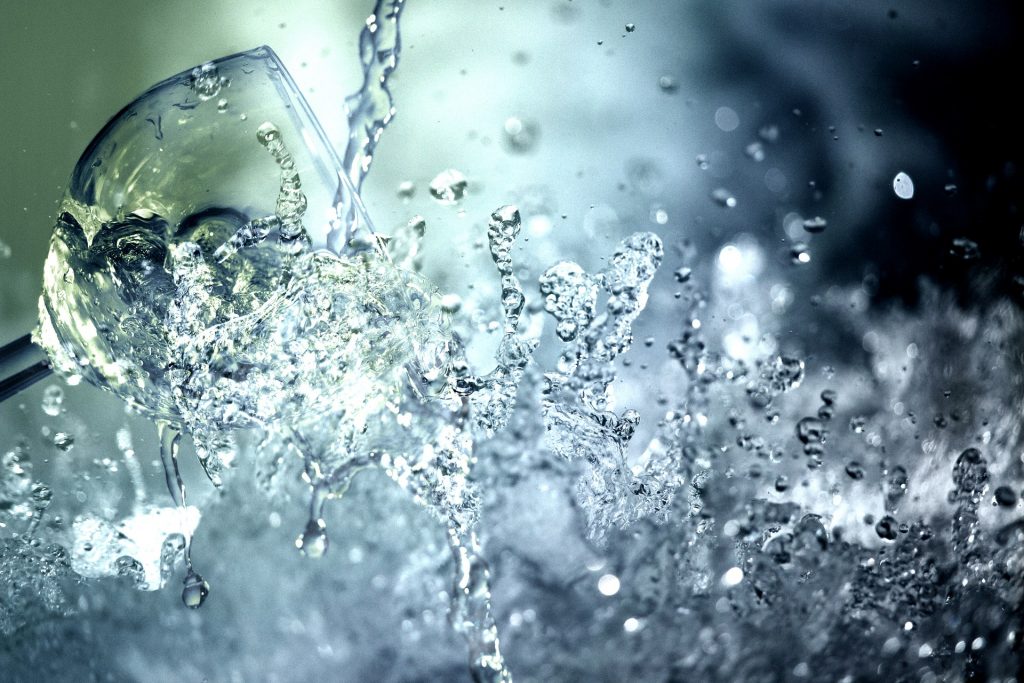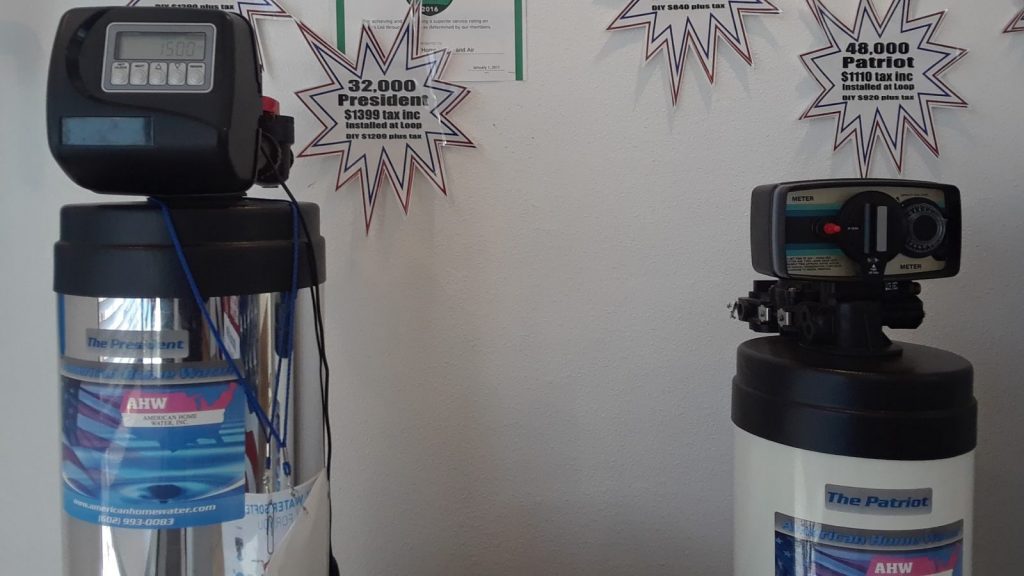Water softeners are essential for providing clean, soft water to your home. However, when they start leaking, it can lead to frustrating problems, such as water damage, higher utility bills, and potential harm to appliances like dishwashers, washing machines, and plumbing systems.
If your water softener is leaking, it’s essential to address the issue quickly. But don’t worry—you’re not alone! We’re here to guide you through the most common reasons for leaking water softeners, how to troubleshoot the problem, and when to call the professionals.
What is a Water Softener, and How Does It Work?
A water softener removes hard minerals, like calcium and magnesium, from water using ion exchange. Water flows through the softener’s resin tank, which contains resin beads that attract the hard minerals and exchange them for sodium ions. This process results in softened water, which reduces mineral buildup in faucets, plumbing systems, and water heaters, improving plumbing efficiency and making water more gentle on skin and clothing.
However, water softener leaking is a common issue homeowners face. Understanding how your water softener works can help you pinpoint the cause of the leak and decide whether you can address it on your own or require professional assistance.
Common Causes of Water Softener Leaking
Several issues can cause a water softener to leak, but here are the most common culprits:
1. Leaking Valve
Valves regulate water flow, but their components can wear out over time and cause leaks. If you see water pooling near your unit, a faulty or malfunctioning rotor valve may be to blame.
2. Brine Tank Problems
The brine tank stores the salt mixture needed for your water softener’s regeneration cycle. If this tank is cracked or overfilled, it can lead to leaks or system overflows. Check regularly for visible cracks, salt bridges, or signs of overflow. You may need to clean the tank or adjust salt levels based on the manufacturer’s guidelines.
3. Damaged O-Rings and Seals
O-rings and seals create tight connections in your water softener system. Over time, they can wear out from exposure to water and chemicals, leading to leaks. Regularly check the seals and replace them if they appear worn or cracked.
4. Control Valve Issues
The control valve directs water flow through the system. If this valve malfunctions or breaks, it can cause leaks within the unit. When the valve becomes damaged, you may notice inconsistent water pressure, which can lead to leaks. A replacement valve or rotor valve is often necessary in these cases.
5. Loose Connections and Pipe Fittings
Sometimes leaks are simply caused by loose or poorly connected fittings. These are easy to miss but can lead to significant problems if not addressed. Be sure to check all fittings and connections around your water softener to ensure they’re secure.
6. Cracked Tanks
Cracked resin or brine tanks are one of the more severe causes of water softener leaks. These cracks can occur over time due to normal wear and tear, freezing temperatures, or mishandling. If you notice a cracked tank, it’s essential to address the problem by repairing or replacing it quickly to prevent water damage.
7. Clogged Drain Lines
If the drain line gets clogged with sediment, the water softener may back up, causing leaks. Ensure your drain line is free of debris and mineral buildup by cleaning it regularly. This will help prevent blockages and maintain the system’s efficiency.
8. Overfilled Brine Tank
An overfilled brine tank can cause excess water to overflow and leak from the softener. This typically occurs when too much salt is added or the float valve becomes damaged. If you notice leaks coming from your brine tank, it’s worth checking the salt level and float valve for any malfunctions.
9. Incorrect Sizing
One of the most common issues that can cause leaks in water softeners is incorrect sizing. An undersized unit may be under more pressure and strain, while an oversized unit could be wasting water and salt. Ensuring that your water softener is the right size for your home and water usage is essential for preventing such problems.
How to Prevent Water Softener Leaks
Consistent upkeep is the key to avoiding costly repairs. Here are some essential water softener maintenance tips to help prevent leaks and keep your system running smoothly:
1. Regular Maintenance
Have your water softener professionally serviced at least once a year. This helps catch small issues early and keeps the system working efficiently. Some service plans also include checking other water-related components, such as your water filter, for optimal performance.
2. Monitor Your Salt Usage
Be mindful of how much salt you’re adding to your water softener. Overfilling the brine tank can lead to overflow, while underfilling can cause insufficient regeneration. Always follow the manufacturer’s guidelines for salt levels to keep your unit running efficiently.
3. Inspect Seals and Valves
Periodically inspect the seals, valves, and pipes for signs of wear, cracks, or corrosion. Replace worn components promptly to avoid leaks and maintain tight seals.
4. Watch for Visible Signs of Leaks
Regularly check the area around your water softener for any dampness, puddles, or moisture. Early detection of leaks can prevent water damage and costly repairs.
5. Test Water Hardness Regularly
To ensure your water softener is working efficiently, it’s essential to test hard water regularly. Testing water hardness helps identify if the softener is doing its job properly and allows you to adjust settings or perform maintenance before problems arise.
Routine maintenance and proper care of your water softener help prevent leaks and keep the system running efficiently to maintain good water quality.
If you’re also interested in further enhancing the quality of your water for drinking and cooking, adding a reverse osmosis or filtration system could greatly complement your water softener. Reverse osmosis offers benefits that can further purify your water and improve taste and safety.
What to Do if Your Water Softener Is Leaking
If you’ve noticed any signs of a water softener leaking, it’s important to act quickly to prevent further damage. Here’s a step-by-step guide:
1. Turn off the water supply
Shut off the water supply to your water softener to stop the leak and prevent additional water from damaging your home or the surrounding area. You may also want to use the bypass valve to temporarily route water around the system while inspecting the issue.
2. Inspect the unit
Inspect your system carefully for any noticeable damage, such as cracked tanks, loose pipe fittings, or worn-out seals. If you find the source, you can resolve it by tightening connections or replacing minor parts.
3. Clean and check the brine tank
Sometimes, leaks stem from salt buildup or overflow. Remove excess salt, look for clogs, and inspect the float valve for proper function. Double-check the water level while you’re at it.
4. Restart and observe
After fixing any visible issues, turn the system back on and observe it closely for any recurring leaks. This helps ensure the problem is resolved.
5. Contact a professional if needed
If the issue persists or seems too complex, it’s best to contact a licensed plumber or HVAC technician. They have the tools and expertise to make a lasting repair and ensure your water system is functioning properly. Also, be sure to check your water softener’s manufacturer warranty—depending on the terms and coverage, you might be eligible for free repairs or replacement parts.
In cases where the unit is outdated or beyond repair, it might be more cost-effective to replace your water softener. A professional replacement can restore optimal performance, improve your home’s water quality, and help prevent further issues with your water system.
When to Call in the Experts
While minor issues like loose connections are often fixable on your own, more complex problems, such as damaged tanks, malfunctioning control valves, or persistent leaks, require a professional’s expertise.
If you’re uncomfortable handling repairs or the issue seems complex, don’t hesitate to contact a licensed HVAC contractor or plumber. They can properly diagnose and repair your water softener, ensuring the leak is fixed and preventing future problems.
Trust American Home Water & Air for Expert Repairs
A water softener leak can be frustrating, but with regular maintenance and prompt repairs, you can avoid significant damage to your home and system. If you’re not comfortable handling repairs or if the issue persists, don’t hesitate to contact American Home Water & Air for expert service.
Our skilled team will quickly diagnose and resolve the issue, ensuring your water softener is functioning efficiently, and your home is protected from leaks. With our reliable service, you’ll have peace of mind knowing your system is in good hands, and your water quality remains at its best.
[related_posts_by_tax posts_per_page="3" format="thumbnails" image_size="medium"]









